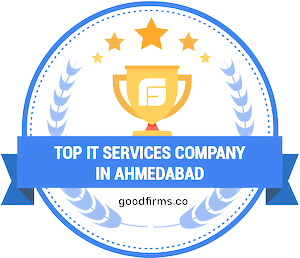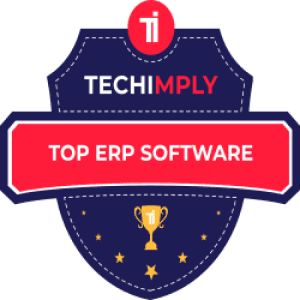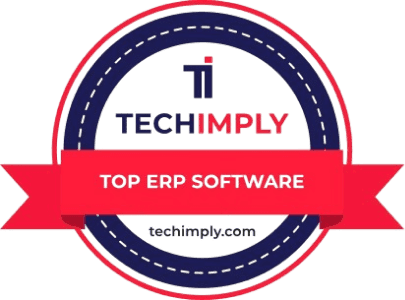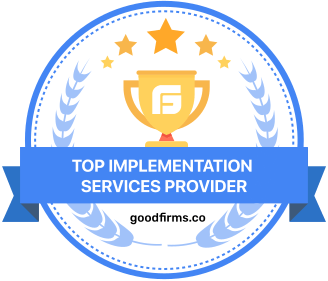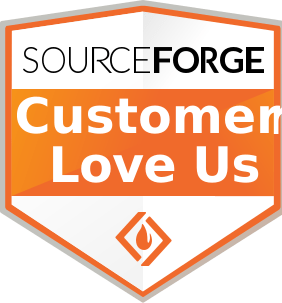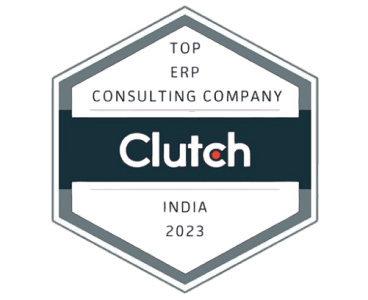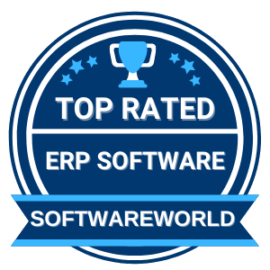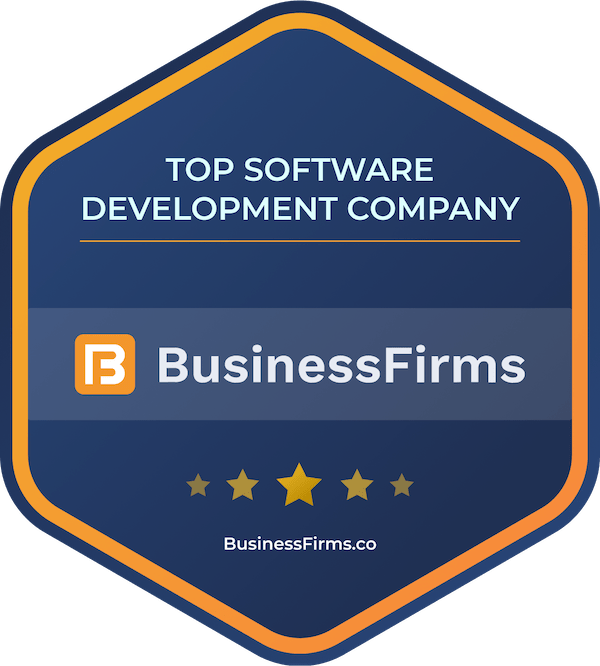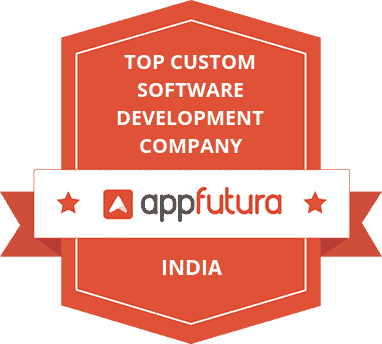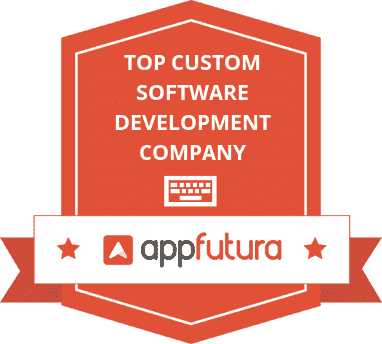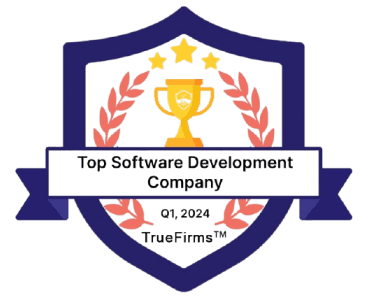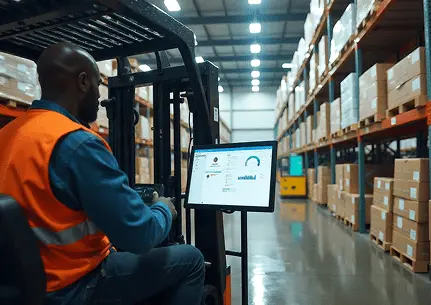Introduction
The African continent is all set to bring revolution in the manufacturing sector, all thanks to favorable demographics, favorable changes in policies, and increasing consumer demands. Countries like Kenya, Ethiopia, and Rwanda are witnessing a paradigm shift toward growth in manufacturing output after decades of de-industrialization. Technological advancements like ERP Software In Africa can play a vital role in driving the manufacturing renaissance.
Though the African continent is full of potential for manufacturing growth, it is essential to overcome some persistent challenges to make revolutionary changes in the sector. Challenges like inadequate infrastructure, lack of reliable energy supply, and increasing production costs need assistance from technology. Here we will dig deep into the role of advanced ERP solutions to bring digital transformation in manufacturing sector in Africa.
Let’s begin with an overview of ERP software and its importance in a thriving manufacturing sector.
Overview of ERP and Its Importance in Manufacturing
ERP or Enterprise Resource Planning is a comprehensive system that integrates and manages the core business processes of an organization. It acts as a central platform for different departments of the manufacturing company, including finance, human resources, supply chain, sales, and production. It eliminates data duplication, brings automation, and reduces human errors significantly. It also streamlines workflows and enhances decision-making capabilities.
Manufacturing ERP solutions can optimize various operations to give manufacturers a competitive edge. They offer high visibility and more control over every aspect of the production process. You can select ERPNext for manufacturing, which is one of the best ERP solutions and a trusted partner for implementing it properly. It can help you address many challenges prevalent in the African manufacturing segment.
Challenges Facing African Manufacturers
African manufacturers face several significant challenges that hinder their competitiveness. Here we mention a few challenges
1. Infrastructure Deficiencies
These are primary hurdles for manufacturing growth. Poor transportation networks, inefficient logistics, and unreliable energy supply are some of the major obstacles.
2. Skill Gap and Human Development
The African region faces a significant shortage of skilled labor that can utilize modern manufacturing techniques and digital systems.
3. Trade Barriers and Inconsistent Policies
Though the African Continental Free Trade Area (AfCFTA) and other initiatives are present, cumbersome customs procedures and non-tariff barriers hinder intra-regional trade.
4. Political and Economic Instability
Unrest and conflicts bring volatility to economies. Such incidents also make business environments unpredictable in some parts of the continent.
5. External Competition
Local manufacturers face competition from cheaper and subsidized imports. Such imported items cover a huge market share, and local manufacturers cannot compete with them.
However, African manufacturers can address these challenges by leveraging the advantages of evolving technology.
Benefits of ERP Software for African Manufacturers
Manufacturing ERP software offers numerous benefits to African industries. It can address sector-specific challenges and unlock the growth potential for manufacturers. Some of the key benefits of ERP software in Africa include
1. Improved Operational Efficiency
ERP systems can automate routine tasks like data entry and financial reconciliation to reduce the chances of human errors and save time. This can increase the operational efficiency of the manufacturing companies as employees can focus on more strategic activities.
2. Enhanced Visibility and Real-time Data
A cloud-based ERP for small businesses can centralize data from all departments into a single and reliable database. It offers real-time insights into inventory levels, sales performance, and the financial health of the company.
3. Optimized Supply Chain Management
This is one of the biggest benefits of ERP manufacturing software for small businesses. It has advanced features for inventory control and procurement. It enables manufacturers to monitor their raw materials and finished goods to optimize the supply chain.
4. Reduced Cost and More Control
As ERP drives automation and digital transformation in manufacturing sector, manufacturers can save big on operational expenses. It also improves resource utilization and assists manufacturers in reducing labor expenses significantly.
5. More Scalability and Adaptability
Modern manufacturing ERP software based on the cloud remains highly flexible and scalable. It can grow with business expansion and accommodate new users easily. This adaptability is beneficial for African manufacturers looking to expand within the continent or beyond.
6. Improved Quality Control and Compliance
Manufacturing or production manufacturing software can integrate quality management processes to enable manufacturers to monitor product development, maintain audit trails, and implement quality standards.
It is fair to mention that ERP software in Africa can bring revolutionary changes to the manufacturing industry. Let’s go through some must-have features of ERP solutions for different industries.
Must-Have ERP Features for Manufacturing in Africa
The manufacturing sector in Africa is expanding rapidly, combining production of various products or goods, including plastic, textile, FMCG, and steel. The best ERP system in Africa can have industry-specific features. Let’s have a glimpse of such features.
1. Steel Manufacturing
ERP for steel manufacturing can streamline operations by integrating raw material tracking, quality control for alloys, and production scheduling for heavy machinery.
2. Plastic Manufacturing
An ERP system offers features for managing recipes, monitoring mold usage, optimizing machine uptime, and managing inventory of products like films, pipes, etc.
3. Textile Manufacturing
An ERP solution for the textile manufacturing sector has features for managing fabric rolls, dye lot tracking, and managing complex order configurations with different colors.
4. FMCG Manufacturing
This ERP focuses on managing high-value, fast-paced production while ensuring strict quality control and optimizing inventory for perishable goods.
5. Leather Manufacturing
An ERP system for small businesses in the leather industry has features for managing cutting and finishing processes, optimizing material yield, and tracking orders for shoes or bags.
6. Pharmaceutical Manufacturing
An ERP for medical drug manufacturing has features like batch and lot traceability, regulatory compliance (like GMP), and quality control monitoring.
7. Electronics Manufacturing
ERP for electronics manufacturing has inbuilt BOM (Bill of Materials) management, production lifecycle management, and production line (like PCB assembly) management.
8. Food Manufacturing
ERP software for food manufacturing has features to track perishable ingredients in real time, manage recipes and allergens, and food safety regulation management.
9. Rubber Manufacturing
ERP in rubber manufacturing is useful in managing different rubber compounds and optimizing curing processes effectively.
10. Glass Manufacturing
In this sector, ERP software can track the melting and forming processes, manage different glass compositions, and monitor energy consumption for high-temperature processes.
11. Chemical Manufacturing
An ERP solution for chemical manufacturing has features to manage hazardous material handling, regulatory compliance management, and inventory management.
12. Automotive Manufacturing
ERP for automotive manufacturing is useful for handling complex assembly line management, handling JIT (Just-in-time) inventory, and facilitating vehicle configuration.
Apart from these specific features, an ERP software in Africa has many features to keep different departments, including sales, purchase, production, procurement, and finance, on the same page. You can consult a reputed provider to get the most suitable ERP system for your manufacturing company. A reliable and renowned ERPNext Partner can help you get the best ERP software in Africa.
Cloud-Based vs On-Premise ERP in the African Context
It is challenging for African manufacturers to choose between cloud-based and on-premise ERP options. This choice depends on several factors, including infrastructure and Internet access. This is a major reason why an on-premise ERP solution is still more prevalent than a cloud-based ERP solution.
Cloud-based ERP for small businesses is available on a subscription model and eliminates the requirement of investing a lot of money in hardware, server, etc. Moreover, the cloud service provider handles maintenance, security, and infrastructure management, so manufacturers do not need to keep an in-house IT team.
However, internet connectivity and data regulations bring challenges in deploying cloud-based solutions. Some African countries may have regulations for storing sensitive corporate data within their borders. For example, the POPI Act in South Africa is a local data protection law that manufacturers must follow.
On the other hand, on-premise ERP software in Africa offers complete control over data, hardware, and software with minimal dependence on the Internet. Moreover, a large and stable enterprise can reduce TCO (Total Cost of Ownership) in the long term with an on-premise solution. But manufacturers have to face high upfront investment and maintenance costs.
Most African manufacturers, particularly SMEs and visionary ones, should opt for cloud-based ERP solutions. However, large and established manufacturers can go for on-premise ERP to manage poor Internet connectivity and stringent data norms. A reputed ERP solution provider can suggest the best ERP system in Africa.
How to Choose the Right ERP Vendor in Africa
When it comes to selecting the right ERP vendor in Africa, manufacturers need to apply a strategic approach. It is essential to consider the continent’s diverse manufacturing environments, unique challenges, and the scope of growth. They should understand their business requirements thoroughly and align them with medium to long-term goals.
Another factor to consider is local presence with a robust support network. It is crucial to address several challenges, including language differences and geographical distances. As a manufacturer, you can evaluate the industry-specific expertise of the vendor. For example, a vendor with a proven track record in deploying steel ERP solutions is a preferred option for the steel manufacturing company.
You should also understand the TCO (Total Cost of Ownership). You should ask for a detailed TCO breakdown. It is necessary because an ERP software in Africa requires various associated costs like maintenance, upgrade, hardware (for an on-premise solution), and ongoing support. Finally, it is imperative to choose the ERP solutions provider who has set benchmarks in transparency, dedication, and integrity.
Future Trends of Manufacturing ERP in Africa
The future of ERP software in Africa is highly promising. Increasing cloud adoption and integration of AI with ML technologies can take ERP solutions to the next level. The rise of mobile ERP and industry-specific ERP solutions will address the unique needs of different manufacturing sectors. Moreover, we can expect improved data analytics and business intelligence features in manufacturing ERP software.
As the smart factory concept gains popularity in Africa, the best ERP for manufacturing industry will come with IoT integration and other advanced features. We can expect that futuristic ERP solutions will drive digital transformation in manufacturing sector, focusing on sustainability and automation.
Concluding Remarks
Africa is getting ready for a manufacturing revolution. In such a scenario, ERP software for Manufacturing can be a game-changer for African industries. It has all the features necessary for addressing core business requirements and streamlining workflows. Manufacturing software for small businesses is available in on-premise and cloud options. As a manufacturer, you can select the right vendor to leverage the benefits of ERP software in Africa and stay ahead.
Matiyas Solutions is a trusted ERP solution provider for core industry sectors including retail, manufacturing, healthcare, and real estate. We suggest the most suitable ERP system for small businesses. Contact us to get the best ERP system in Africa and grow your business through digital transformation in Africa.

 "I am quite happy with the ERP solution provided by Matiyas. Before we implemented their system, our organization was struggling with inefficient processes and fragmented data. Their customized ERP solution not only streamlined our workflows but also provided real-time insights into our operations. The customer support from Matiya's Team has been exceptional throughout the journey."
"I am quite happy with the ERP solution provided by Matiyas. Before we implemented their system, our organization was struggling with inefficient processes and fragmented data. Their customized ERP solution not only streamlined our workflows but also provided real-time insights into our operations. The customer support from Matiya's Team has been exceptional throughout the journey."
 "Matiyas offered us a functionally strong and automated solution to address the end-to-end needs of our business operation. This solutions will be able to scale and grow our business and it will surely reduce manual interventions."
"Matiyas offered us a functionally strong and automated solution to address the end-to-end needs of our business operation. This solutions will be able to scale and grow our business and it will surely reduce manual interventions."
 "I wanted to thank you Matiyas team to set-up the ERP system based on our business process. The assistance was invaluable in helping my company get as we requested. We sincerely appreciate your efforts and thanks again Matiyas team to provide us a best solution with the erp system."
"I wanted to thank you Matiyas team to set-up the ERP system based on our business process. The assistance was invaluable in helping my company get as we requested. We sincerely appreciate your efforts and thanks again Matiyas team to provide us a best solution with the erp system." "Go ahead with Matiyas and Capture data at lowest level and you can build | report | analyse | get insights across business dimension to take informed decisions."
"Go ahead with Matiyas and Capture data at lowest level and you can build | report | analyse | get insights across business dimension to take informed decisions."
 "The implementation of the Matiyas ERP solution has revolutionized our workflow. The automation of previously manual processes has not only saved us time but also significantly reduced errors. It’s like having an extra set of hands on our team, streamlining operations and boosting productivity"
"The implementation of the Matiyas ERP solution has revolutionized our workflow. The automation of previously manual processes has not only saved us time but also significantly reduced errors. It’s like having an extra set of hands on our team, streamlining operations and boosting productivity"
 "We would definitely encourage anyone willing to get services from Matiyas. they are honest hardworking and smart team. they stretch them maximum to achieve success for their clients."
"We would definitely encourage anyone willing to get services from Matiyas. they are honest hardworking and smart team. they stretch them maximum to achieve success for their clients."
 "Matiyas system has been helpful to us for execution of our day-to-day operations in scholarship. The team has been very supportive and always available to accommodate with any challenges that we have faced. Overall, we had good experience working with Matiyas!"
"Matiyas system has been helpful to us for execution of our day-to-day operations in scholarship. The team has been very supportive and always available to accommodate with any challenges that we have faced. Overall, we had good experience working with Matiyas!"
 "We at I2E Consulting were looking for Healthcare Module consultation in ERP and we came across Matiyas Solutions website. From managing the business to adding his Expertise in Healthcare module, Hasan has done it all single handedly. All our Queries were solved in a timely manner. Regular follow ups were done."
"We at I2E Consulting were looking for Healthcare Module consultation in ERP and we came across Matiyas Solutions website. From managing the business to adding his Expertise in Healthcare module, Hasan has done it all single handedly. All our Queries were solved in a timely manner. Regular follow ups were done."
 "Our company is very new to ERP, we tried to implement ERP by ourselves, however along the way we found struggles as we are very new. We are lucky HasanAli from Matiyas helped us in many ways, from a simple question to very complex developments and deployments. Rates are reasonable too! We are happy that Matiyas is there to help us."
"Our company is very new to ERP, we tried to implement ERP by ourselves, however along the way we found struggles as we are very new. We are lucky HasanAli from Matiyas helped us in many ways, from a simple question to very complex developments and deployments. Rates are reasonable too! We are happy that Matiyas is there to help us."
 "The folks at Matiyas Software are the best. They're skilled, work quickly and professionally, and were able to tailor ERP to our exact specifications. Would use them again."
"The folks at Matiyas Software are the best. They're skilled, work quickly and professionally, and were able to tailor ERP to our exact specifications. Would use them again."
 "Very knowledgeable and prompt and professional. I highly recommend Matiyas for any ERP customizations."
"Very knowledgeable and prompt and professional. I highly recommend Matiyas for any ERP customizations." “Moving from long standing practices to a new system is always challenging. The Matiyas team handled the transition with professionalism and complete cooperation across all departments. The ERP is extremely user friendly and easy for every department to understand. Continuous support during implementation made the process smooth. Dashboard-based reporting has given us control over every department at the same time.”
“Moving from long standing practices to a new system is always challenging. The Matiyas team handled the transition with professionalism and complete cooperation across all departments. The ERP is extremely user friendly and easy for every department to understand. Continuous support during implementation made the process smooth. Dashboard-based reporting has given us control over every department at the same time.” “We had requested this customized report from another vendor, but they were not able to do it. Matiyas was able to customize the report exactly as per our requirements. We have been using ERP since 2016, and this report will help us significantly in decision-making. Matiyas's ERP is a good product.”
“We had requested this customized report from another vendor, but they were not able to do it. Matiyas was able to customize the report exactly as per our requirements. We have been using ERP since 2016, and this report will help us significantly in decision-making. Matiyas's ERP is a good product.” “Working with Matiyas gave us confidence from day one. Their ERP customization expertise and commitment to delivering the right solution made a real difference to our business.”
“Working with Matiyas gave us confidence from day one. Their ERP customization expertise and commitment to delivering the right solution made a real difference to our business.”









